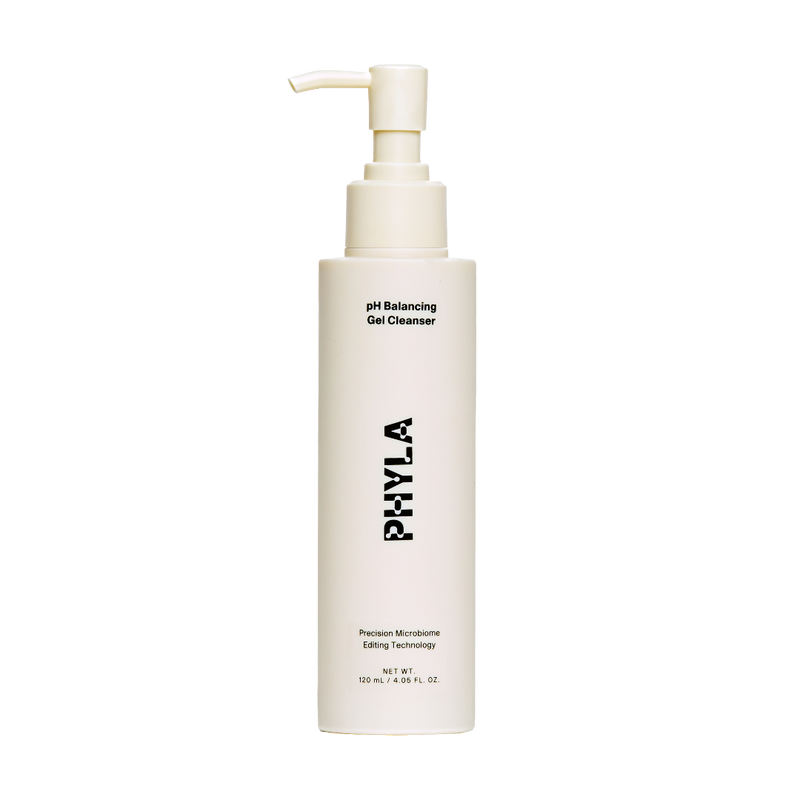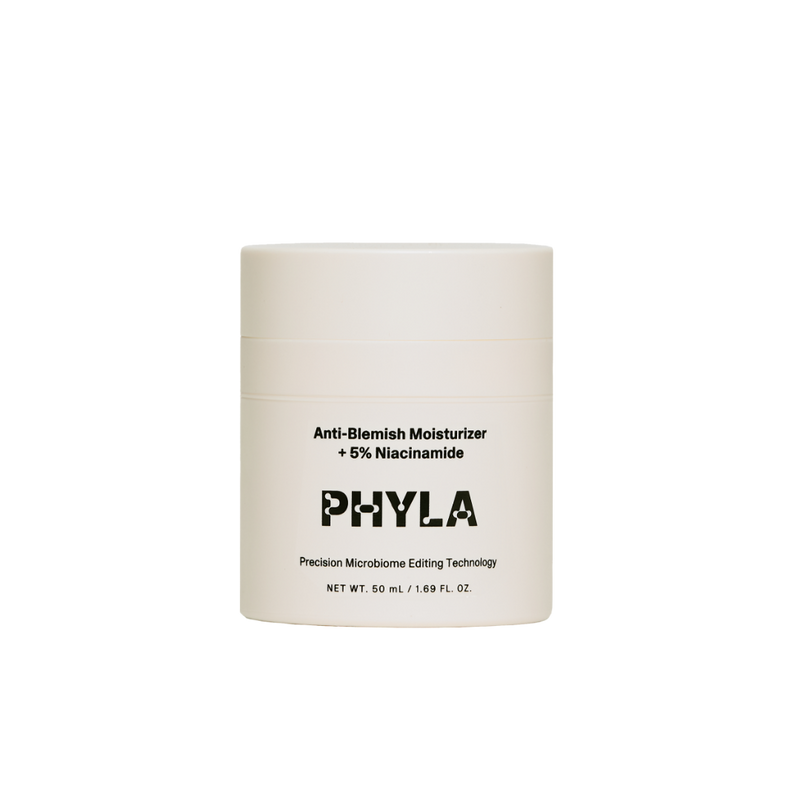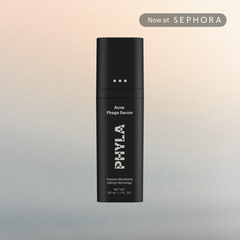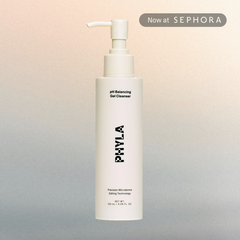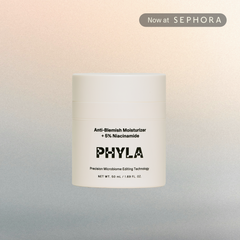The Most Common Skincare Mistakes

Skincare is an important aspect of maintaining healthy, balanced skin. However, for those who suffer from acne, skincare can be a tricky minefield to navigate. Acne is a common skin condition that affects millions of people worldwide, and while there is no one-size-fits-all solution to it, taking good care of your skin is essential to manage it effectively.
Unfortunately, there are many skincare mistakes that people make when it comes to acne and keeping a healthy microbiome, which can exacerbate acne symptoms. In this blog post, we'll explore the most common skincare mistakes to avoid to help you achieve healthy and balanced skin.
Mistake #1: Over-cleansing
Cleansing is a crucial step in any skincare routine, but it's easy to fall into the trap of over-cleansing, especially when dealing with acne-prone skin. Over-cleansing can be harmful to the skin's natural microbiome balance and lead to acne flare-ups, making it important to find the right balance.
When it comes to choosing a cleanser for acne-prone skin, it's important to look for a gentle, non-comedogenic formula that won't clog pores. Non-comedogenic means that the product has been formulated to not block pores, which can lead to the formation of pimples and blackheads. Ingredients like salicylic acid are common in acne cleansers, but they can cause purging and should be introduced into your skincare routine slowly.
Using a harsh scrub or hot water while cleansing can also cause damage to the skin's natural barrier and disrupt the microbiome balance. Instead, opt for a gentle cleanser and lukewarm water to avoid irritation and dryness.
In addition to choosing the right cleanser and being mindful of how often you cleanse, it's important to pay attention to your skin's unique needs. Everyone's skin is different, so what works for one person may not work for another. If you notice that your skin is becoming too dry or irritated, try cutting back on how often you cleanse or switching to a gentler cleanser.
Mistake #2: Using too many products
As consumers, we are often inundated with new skincare products promising to be the answer to all our skin concerns. It's understandable that we want to try them all, but it's important to remember that our skin has limits. Overloading our skin with too many products can lead to a host of problems, including acne flare-ups and damage to our skin's microbiome.
When it comes to skincare, less is often more. A simple and consistent routine is key to maintaining healthy skin. This means sticking to the basics: cleansing and moisturizing. Of course, if you have specific concerns like acne or hyperpigmentation, you may need to incorporate additional products. But even then, it's important to keep it simple.
When introducing new products, it's crucial to do so gradually. Your skin needs time to adjust to new ingredients, and using too many products at once can cause irritation, clog pores, and even trigger breakouts. To avoid this, start by introducing one new product at a time. This will allow you to observe how your skin reacts to the new product for a few weeks and make adjustments as needed. It's also important to patch test new products on a small area of your skin before applying them to your entire face.
Mistake #3: Using the wrong products
When it comes to skincare products, it's important to choose wisely. Not all products are created equal, and using the wrong products can worsen your acne and disrupt your skin's microbiome. One of the most common mistakes people make is using harsh products that strip the skin of its natural oils. These products can lead to dryness and irritation, triggering acne breakouts.
Dryness and irritation can cause the skin's natural barrier to become compromised, leaving it more vulnerable to bacterial and environmental damage. This can further exacerbate acne breakouts and even lead to other skin issues like redness, inflammation, and premature aging. It's important to choose gentle products that are specifically designed for acne-prone skin and are free from harsh ingredients like alcohol, fragrances, and sulfates.
Ultimately, choosing the right skincare products for acne-prone skin may require some trial and error. It's important to read labels carefully, research ingredients, and observe how your skin reacts to each product.
Mistake #4: Skipping moisturizer
Moisturizing is a crucial step in any skincare routine, even for those with acne-prone skin. Many people with acne are hesitant to use moisturizer because they fear it will make their skin more oily and prone to breakouts. However, this is a common misconception. In fact, skipping moisturizer can do more harm than good. When the skin isn’t moisturized properly, it produces more oil to compensate, leading to clogged pores and breakouts.
In addition to choosing the right moisturizer, it's also important to apply it correctly. After cleansing, gently pat your skin dry with a clean towel, leaving it slightly damp. Then, apply a pea-sized amount of moisturizer to your face, using gentle, upward motions. Be sure to focus on any dry or flaky areas, but avoid applying too much.
By including a moisturizer in your skincare routine, you can help keep your skin hydrated and balanced, without exacerbating acne or disrupting your skin's microbiome.
Mistake #5: Picking and popping pimples
Picking and popping pimples is a tempting habit, but it can be one of the worst things you can do for your acne-prone skin. When you squeeze a pimple, the Cutibacterium acnes bacteria that is trapped inside can be pushed deeper into the skin, leading to more inflammation and potentially more pimples in the surrounding area. Additionally, picking or squeezing can damage the skin, causing scarring and hyperpigmentation. You can read more about acne scarring here.
If you're struggling with the urge to pick at your pimples, there are a few things you can do to avoid this harmful behavior. Firstly, try to keep your hands away from your face as much as possible. Touching your face can transfer bacteria and oil from your hands onto your skin, exacerbating acne. If you do need to touch your face, make sure your hands are clean first.
Secondly, use spot treatments to manage your pimples. Spot treatments contain active ingredients like sulfur or salicylic acid that help to reduce inflammation and kill acne-causing bacteria. Apply a small amount of the treatment directly onto the pimple and leave it on for the recommended amount of time. Avoid applying too much, as this can lead to dryness and irritation.
Remember, it's better to be patient and let your acne heal on its own than to risk causing more damage by picking at it.
Mistake #6: Neglecting a healthy diet
While it's true that genetics, hormones, and lifestyle factors like stress can all contribute to acne, what you eat can also play a significant role in the health of your skin. Eating a diet high in sugar, processed foods, and dairy products can trigger acne breakouts by causing imbalances in your gut microbiome, leading to inflammation and increased sebum production.
To keep your skin healthy and nourished, it's important to focus on eating a diet rich in whole, nutrient-dense foods. Include plenty of fruits and vegetables, which are high in vitamins, minerals, and antioxidants that support healthy skin function. Choose pasture-raised proteins like grass-fed beef, free-range chicken, and wild-caught fish, which are rich in omega-3 fatty acids and other essential nutrients that promote skin health.
Healthy fats are also crucial for maintaining healthy skin, as they help to hydrate and nourish the skin from the inside out. Focus on incorporating healthy fats like avocados, nuts and seeds, olive oil, and coconut oil into your diet.
In addition to eating a healthy diet, it's also important to stay hydrated by drinking plenty of water throughout the day. This helps to keep your skin hydrated and flush out toxins that can contribute to acne and other skin issues.
While changing your diet alone may not be enough to clear up acne completely, it can be a powerful tool in conjunction with other skincare practices to promote healthy, clear skin.
In conclusion, avoiding these common skincare mistakes can help you achieve healthy, clear skin. Be consistent with your skincare routine, use the right products, and nourish your skin from within by eating a healthy diet. Remember, everyone's skin is different, and what works for one person may not work for another.
If you have any lingering questions regarding your skincare routine, please reach out to us at esthetician@phylabiotics.com. One of our licensed estheticians will gladly assist you!


